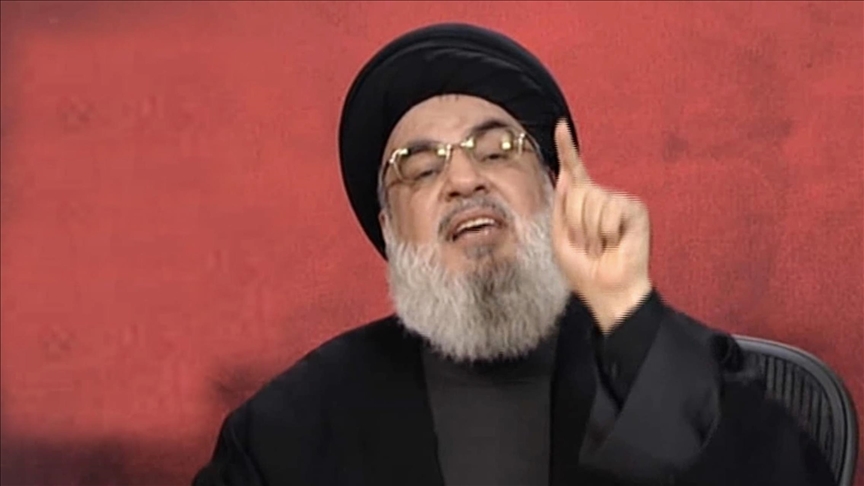On Saturday, Lebanon woke up to the news that the powerful Hezbollah leader, Hassan Nasrallah, has been killed.
Nasrallah’s death is a big blow to the militia, which has recently been hit by a series of attacks, including exploding pagers and walkie-talkies targeting Hezbollah members.
Israel announced Saturday that it conducted a targeted strike on a suburb of southern Beirut, killing Nasrallah and several top commanders of the militia. Nasrallah led the group for over three decades and has been instrumental in growing it into an influential military and political organization.
But who was Hassan Nasrallah, and how did he become a leader of one of the largest military groups in the Middle East? Let’s explore little-known details of the shadowy figure with close ties to Iran.
An early passion for religious studies
Nasrallah was born on August 31, 1960, in Bourj Hammond, a suburb of Beirut, and he was the eldest of seven siblings. He grew up in a lower-middle-class family, and his father, Abdul Karim, owned a greengrocer shop.
At the age of 16, Nasrallah joined the Amal Movement, a Shiite political group, soon after Lebanon descended into a civil war in 1975. Shortly after, he traveled to the Iraqi holy city of Najaf to attend a Shia seminary, before returning to Lebanon to rejoin the Amal.
He was among the founding members of Hezbollah
During the Israel invasion of Lebanon, Nasrallah became one of the founding members of Hezbollah, a local militant group that was established with the help of Iran’s Revolutionary Guards.
Nasrallah made a name as a fearless and charismatic leader, and he quickly rose through the ranks to become a director in Baalbek, Bekaa, and later in Beirut. His rise was accelerated by the assassination of Hezbollah’s senior commanders.
When then Hezbollah leader, Abbas al-Musawi, was killed in an Israel helicopter strike, Nasrallah rose to the helm of the militia in 1992, at just 32.
His immediate action was to retaliate for the killing of the former leader, and he ordered rocket attacks into northern Israel, a car bomb attack at the Israeli embassy in Turkey, and a suicide bomber attack at the Israeli embassy in Argentina.
He transformed Hezbollah into an influential non-state military organization
During his three decades of leadership at the military organization, Nasrallah transformed Hezbollah into one of the most influential political and military organizations in the Middle East. He helped the group acquire advanced weaponry and precision-guided missiles to match the firepower of its enemy.
Nasrallah led a war against Israel forced aimed at forcing their withdrawal from Southern Lebanon. When Israel finally left Southern Lebanon in 2000, Nasrallah claimed they had achieved the first Arab victory against Israel. However, his firstborn son Hadi was killed in the firefight with Israeli forces.
He also defended his decision to send Hezbollah fighters into Syria to help President Bashar al-Assad, its Iran-backed ally, put down a rebellion. However, Lebanese Sunni leaders criticized the move and termed the action as sectarian and influenced by Iran.
He lived a secretive lifestyle
Perhaps due to the security risk he faced as the leader of Hezbollah, Nasrallah lived a notoriously secretive lifestyle, and not much is known about his personal life. He rarely left the Hezbollah bunkers, and his public appearances became rarer as years went by.
However, though he maintained a low public profile, he maintained an iron grip on Hezbollah, controlling the group’s narrative and ensuring loyalty among its top ranks. While Hezbollah members saw him as a military leader, he was also seen as a spiritual guide by the Lebanese people.
His sermons blended politics with religion, and he portrayed the image of a protector of the Shia community in Lebanon.
He was one of the wealthiest figures in Hezbollah
Nasrallah portrayed himself as a humble leader, and he lived a modest lifestyle in the Beirut suburbs. However, foreign intelligence organizations described him as one of the wealthiest Hezbollah leaders who enjoyed round-the-clock protection and had access to private medical care and education for his young children.
US intelligence also fingered him for his alleged involvement in corruption, allegations he vehemently denied. For a leader who has been at the helm of Hezbollah leadership for more than three decades, he had unlimited access and control of Hezbollah’s assets and resources.


